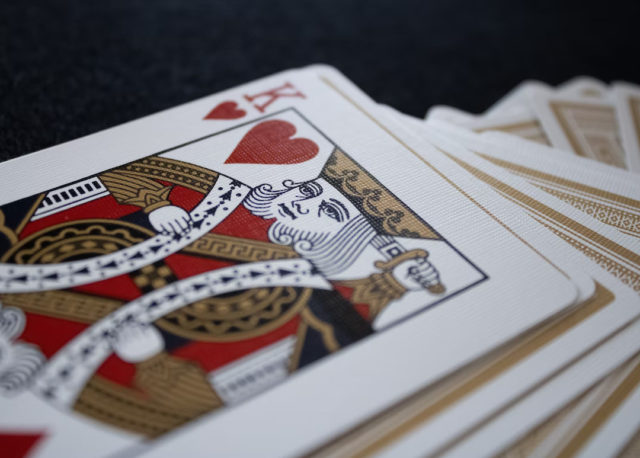Three Social Skills You Can Learn From Poker
The traditional stereotype of the poker player as the hard-living night hawk has long since gone into the discard pile of history. Poker has undergone two separate revolutions in the last few decades, both of which feed into each other.

The first was the advent of online poker. You no longer need to find a casino or card room or take a whole evening out for a Friday night game with friends. Players can enjoy the game from the comfort of their own homes – and with the more recent advances in mobile technology, from wherever they can get an internet hookup.
The second was the broadcasting of poker tourneys; both prestigious events such as ESPN and CBS’ World Series Of Poker coverage and purpose-created studio events like NBC’s Poker After Dark. Viewers saw up close that top professionals like Phil Ivey and Jennifer Harman were, to all intents and purposes, normal human beings just like them.
The exposure to poker also helped cement in the minds of the general public that poker is a game of skill rather than simple luck, through the same names – Ivey, Harman, Phil Hellmuth, Daniel Negreanu – being at the final tables with high frequency. Rather than relying on bombastic calls or predatory card sharking tactics, these folks have numerous mental skills learned in poker, which can be applied to wider life. That’s not bluffing, lying or fakery, but positive attributes you can use in a beneficial way.
Let’s take a look at a winning triplet.
Relationship management
While the online game is principally an exercise in math, as hands come at the rate of 75-100 per hour, the live game is around one-third the speed. There’s a lot of dead air at a poker table where the space will be filled with small talk and occasionally emotional displays. Getting a read on an opponent – trying to find their ‘tell’ – is essential to success in poker. Of course, at the very top level, those are few and far between, so getting a feel for what drives someone based on minimal information can be the difference between winning and losing. If we take the principle and apply it to the workplace, say, then it can offer insight into how to relate to and motivate our colleagues.
Analysis
Poker, primarily, is an exercise in probabilities. If someone has lucky numbers of two and nine, based on a birthday or anniversary, say, they’re not likely to get very far if they continually play those cards, as there are not many winning hands to be made from them. On the flip side, there are always going to be bad beats in poker – where a seemingly strong hand of an ace-high straight is beaten by three fours. A modicum of resilience needs to be developed. Sometimes you have to accept it’s just not your day and move on to the next one. However, that doesn’t mean we shouldn’t try to take lessons from the events in an effort to stop ourselves from falling into the same trap twice. Learning from missteps – trial and error, even – is a key to developing problem-solving abilities to help the mind both on the table and in life in general.
Empathy
If we take the principle of relationship management and apply it to the self, then we can gain some knowledge about our own level of self-awareness. While poker players are competitive, you’ll rarely see them being aloof. Yes, competition is ongoing; however, if we don’t have a good rapport with our fellow players, then the odds of us being invited to the next game may be a busted flush. It’s imperative that poker players see each other as real people and as equals.
The most famous story in the modern game is that of Chris Moneymaker. The accountant from Tennessee won his place at the 2003 World Series of Poker Finals through an online qualifier. A sense of perceived superiority may have upended some of the professionals he took out on his way to the $2.5m grand prize. By the same token, going into a poker game feeling daunted – impostor syndrome, in the worst-case scenario – won’t lead to anything good. If one has little faith in one’s own skills, one won’t be able to relate to others in a realistic framing.
Poker has often been described as life in a microcosm. While it can be a fairly intense affair, that can offer valuable insights into where your social skills are and windows into their improvement.